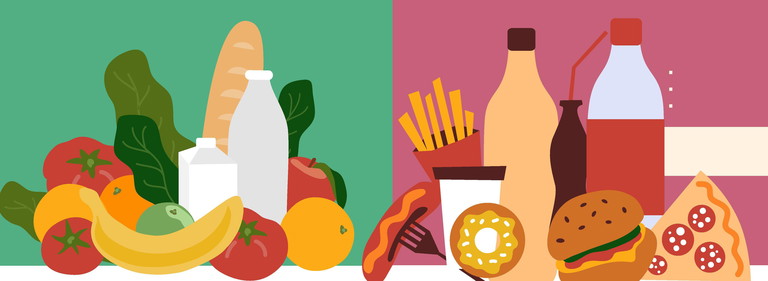NUTRITION

Food for thought
Alliance quality and standards manager Melanie Pilcher explains the different influences on children’s diet
The subject of behaviour and nutrition throws up a few challenges for parents and for those of us who support parents. Starting from the beginning, between birth and when they reach 12-years old, a child grows and develops rapidly. Diet and exercise play a vital role from the outset, and it is in the early years that parents and carers have the biggest influence over what a child eats, how much they eat and when.
As toddlers (18 to 30 months), children are developing preferences for certain foods and still experimenting with new tastes and textures. They may become fussy eaters, but for most toddlers this is a phase that will pass and can be attributed to normal behaviours such as feeling tired or unwell, under pressure to eat food they do not like, or simply having had enough.
Family impact
Parents and carers often worry about children not eating enough however they can sometimes inadvertently make the problem worse in the name of trying to do the right thing. Those of us who are older may remember being told that we could not leave the table until our plates were clean – a throwback to the rationing that our parents or grandparents experienced during the Second World War, when wasting food was seen as almost criminal. Subsequently, many people developed lifelong aversions to foods that they were forced to eat.
It is also challenging for parents to make the right choices for their child when the guidance on what is good and bad in the world of nutrition so frequently changes. Food manufacturers sometimes mislead the public with claims about their healthy, low-fat foods, neglecting to mention that some of these foods are loaded with sugar instead. Advertising slogans frequently entice parents into believing that they are making good nutritional choices for their children when purchasing often heavily processed products.
Adults can also unconsciously convey messages about food to children. For example, the foods we refer to as ‘treats’, and use as a reward for being good or something to make you feel better when you are upset, are often not particularly healthy. These are behaviours that we all use to one extent or another and they are established from an early age.
Outside influences
As children get older, other influences become more prominent. Social media, advertising and peer pressure all play a part in shaping children’s diets. This happens simultaneously while children are gaining independence and starting to make their own choices. They will eventually have the independence to go to the shops on their own, to buy what they want and this is where the instinct to push the boundaries and buy something that is limited at home, or to overindulge themselves, is strongest.
Leisure time plays a big part in shaping children’s diets too. Children lead increasingly sedentary lifestyles today. Screen time makes snacking is more likely to occur and when children will not give much thought to the amount they are eating as their concentration is elsewhere.
It is important that we don’t fall into the trap of blaming parents for these habits. We should acknowledge that we live in a world where we can often have what we want when we want it and understand the influence that the advertising can have on dictating what that is.
How you can help
Fortunately, there are always things we can all do to improve children’s food-related behaviours including, but not limited to:
- being a good role model
- avoiding using food as a treat or reward
- being aware of the correct portion sizes for children - it is often less than you think
Find out more
You can get the Alliance’s mini-guide on Promoting healthy eating in the Members’ Area of our website at portal.eyalliance.org.uk.